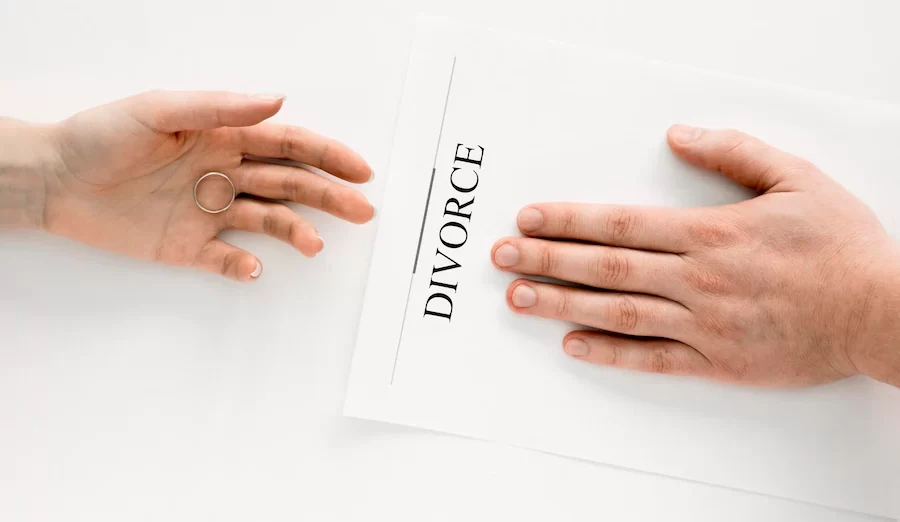Divorce lawyers are attorneys who specialize in handling divorce cases. They help individuals navigate the often complex and emotionally charged process of ending a marriage.
Divorce can be an emotionally difficult and very stressful experience, and individuals need to have a knowledgeable and experienced advocate on their side to protect their rights and interests.
What Does a Divorce Lawyer Do?
Divorce lawyers are trained to handle a wide range of legal issues that arise during the divorce process, including property division, child custody, alimony, and other financial matters. They work closely with their clients to understand their needs and goals and help them navigate the legal process in a way that is best for them.
One of the primary responsibilities of a divorce lawyer is to negotiate a settlement agreement with the other party. This may involve working out the details of property division, child custody, and other financial matters.
Divorce lawyers use their legal expertise and negotiation skills to help their clients reach a fair and mutually acceptable resolution to these issues.
Who Do They Represent?
In addition to negotiating settlements, divorce lawyers may also represent their clients in court. This may involve preparing and presenting cases, examining and cross-examining witnesses, and arguing legal points.
Divorce cases can be complex and may involve a wide range of legal issues, so divorce lawyers need to have a thorough understanding of the law and be able to advocate for their clients effectively.
How to Choose a Divorce Lawyer
- Determine Your Needs: Before you start searching for a divorce lawyer, take some time to assess your needs. Consider factors such as whether you anticipate a contentious divorce, whether there are significant assets involved, whether child custody will be a major issue, and whether you and your spouse are likely to agree on terms or if there will be disputes.
- Research: Begin your search by researching divorce lawyers in your area. You can use online directories and lawyer referral services or ask for recommendations from friends, family, or other professionals who have been through a divorce. Make sure to consider lawyers who specialize in family law and have experience handling divorce cases.
- Check Qualifications and Experience: Look into each lawyer’s qualifications and experience. Check if they are licensed to practice law in your state and if they are in good standing with the bar association. Review their educational background, years of experience practicing family law, and their track record with divorce cases. Experience matters, especially if your case involves complex issues.
- Consider Specialization: While any licensed attorney can handle a divorce case, it’s generally advisable to choose a lawyer who specializes in family law or divorce specifically. Specialized lawyers are more likely to be familiar with the nuances of divorce law and the local court system and have established relationships with judges and other attorneys in the field.
- Assess Communication Style: Effective communication is crucial in any legal matter, especially in emotionally charged cases like divorce. During your initial consultations with potential lawyers, pay attention to their communication style. They should listen attentively to your concerns, explain complex legal concepts in a way you understand, and respond promptly to your inquiries.
- Evaluate Compatibility: Your divorce lawyer will be your advocate and confidant throughout the divorce process, so it’s essential to choose someone you feel comfortable working with. Trust your instincts and consider whether you feel a sense of rapport with the lawyer. A good lawyer-client relationship is built on trust, respect, and open communication.
- Assess Cost and Fees: Understand the lawyer’s fee structure upfront. Some lawyers charge by the hour, while others may work on a flat fee or contingency basis. Make sure you are clear on how you will be billed and what services are covered. Additionally, inquire about any additional costs such as court fees, filing fees, or fees for expert witnesses.
- Read Reviews and Testimonials: Take the time to read reviews and testimonials from past clients. While online reviews should be taken with a grain of salt, they can provide valuable insights into a lawyer’s reputation, professionalism, and success rate.
- Ask About Strategy: During your initial consultation, ask the lawyer about their strategy for handling your case. Inquire about potential outcomes, timelines, and any alternative dispute resolution methods they may recommend, such as mediation or collaborative divorce.
- Seek a Second Opinion: If you’re unsure about a lawyer or have doubts about their advice, don’t hesitate to seek a second opinion from another attorney. A second opinion can provide you with additional perspective and help you make a more informed decision.
- Trust Your Instincts: Ultimately, trust your instincts when choosing a divorce lawyer. You should feel confident that your lawyer has your best interests at heart and is committed to helping you achieve a favorable outcome.
Finding a Good Lawyer
There are several ways to find a divorce lawyer. One option is to ask for recommendations from friends, family, or other professionals, such as financial advisors or therapists. You can also do your research by looking for lawyers who specialize in divorce and family law and reading reviews from past clients.
It is also a good idea to meet with several lawyers before making a decision, as this will allow you to ask questions and see if you like their style and approach.
In addition to their legal skills, divorce lawyers should also have excellent negotiation and communication skills.
They should be able to clearly explain legal concepts and options to their clients and help them make informed decisions. They should also be able to effectively communicate with the other party and their lawyers to try to resolve the issue.
Final Thoughts
Divorce can take a severe emotional toll on everyone involved, and it is essential to have a skilled and compassionate lawyer on your side.
Divorce lawyers can help individuals navigate the legal process, protect their rights and interests, and work toward a fair and mutually acceptable resolution.
